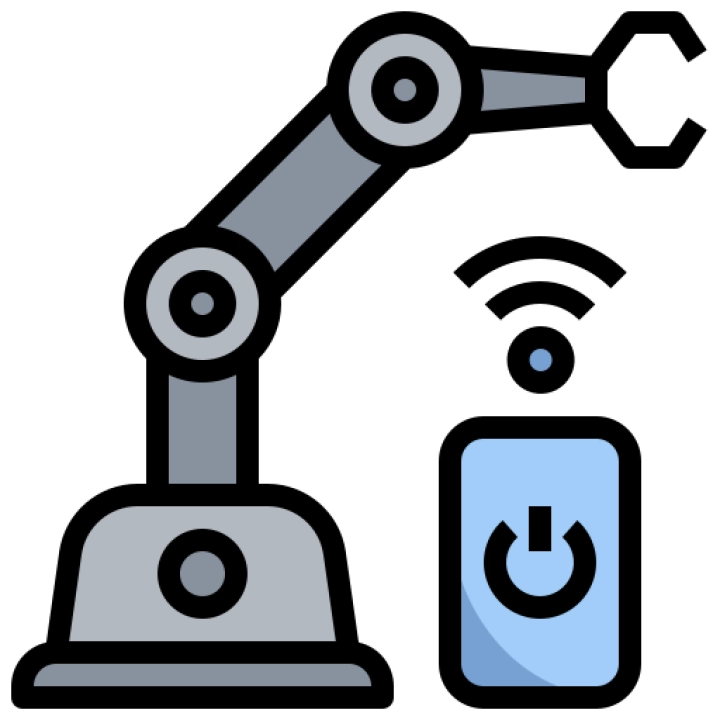Faculty: Graduate School of Natural and Applied Sciences
This program focuses on the fourth industrial revolution, integrating advanced technologies such as the Internet of Things (IoT), Artificial Intelligence (AI), robotics, and data analytics in manufacturing and industrial processes. Students acquire skills in smart manufacturing, digital transformation, automation, cyber-physical systems, and industrial IoT, preparing them for careers in advanced manufacturing, engineering, consulting, and related fields.
Learning Objectives:
- Understand the principles and technologies of Industry 4.0.
- Develop skills in smart manufacturing and digital transformation.
- Learn automation and robotics technologies.
- Explore cyber-physical systems and industrial IoT.
- Analyze data analytics and AI applications in industry.
- Develop critical thinking, problem-solving, and innovation skills.
- Understand the ethical, social, and environmental impacts of Industry 4.0.
Main Curriculum:
- Introduction to Industry 4.0 - An overview of Industry 4.0, its technologies, and industry trends.
- Smart Manufacturing - Principles and practices of smart manufacturing, including smart machines and integrated systems.
- Digital Transformation - Strategies for digital transformation in manufacturing and industrial processes.
- Automation and Robotics - Technologies and applications of automation and robotics in Industry 4.0.
- Cyber-Physical Systems - Integration of computational and physical processes in industrial systems.
- Industrial IoT - Principles and applications of IoT in industrial environments.
- Data Analytics and AI in Industry - Techniques for data collection, analysis, and interpretation to support industrial decision-making.
- Cybersecurity in Industry 4.0 - Principles of cybersecurity, risk management, and information assurance in industrial systems.
- Ethical, Social, and Environmental Impacts - Understanding the ethical, social, and environmental considerations of Industry 4.0 technologies.
- Practical/Applied Training - Real-world experiences in Industry 4.0 environments, such as advanced manufacturing facilities, engineering firms, or consulting companies.
- Capstone Project - A comprehensive project applying Industry 4.0 skills, such as designing a smart manufacturing system, developing an automation solution, or conducting a digital transformation project.
Assessment Methods:
Projects in smart manufacturing, digital transformation plans, automation and robotics studies, analyses of cyber-physical systems, industrial IoT applications, data analytics and AI projects, cybersecurity risk assessments, ethical and environmental impact analyses, training reports, capstone projects, group projects, and presentations.
Recommended Textbooks:
- "Introduction to Industry 4.0" by various authors.
- "Smart Manufacturing" by various authors.
- "Digital Transformation" by various authors.
- "Automation and Robotics" by various authors.
- "Cyber-Physical Systems" by various authors.
- "Industrial IoT" by various authors.
- "Data Analytics and AI in Industry" by various authors.
- "Cybersecurity in Industry 4.0" by various authors.
- "Ethical, Social, and Environmental Impacts" by various authors.
Prerequisites:
Basic knowledge of engineering principles, computer science, and an interest in advanced manufacturing and digital technologies.
Duration:
Typically 4 years for a bachelor's degree or 2 years for a master's degree in Industry 4.0.
Certification:
Graduates can achieve certifications from professional organizations such as the Industry 4.0 certification from the Industry 4.0 Association, or the Certified Automation Professional (CAP) from the ISA, or equivalent Industry 4.0 certifications.
Target Audience:
Aspiring industrial engineers, automation specialists, data analysts, cybersecurity experts, and professionals seeking careers in advanced manufacturing facilities, engineering firms, consulting companies, technology providers, and related fields. This program equips students with the technical and innovative skills necessary to excel in Industry 4.0, supporting careers in various roles in advanced manufacturing, engineering, and digital transformation.

